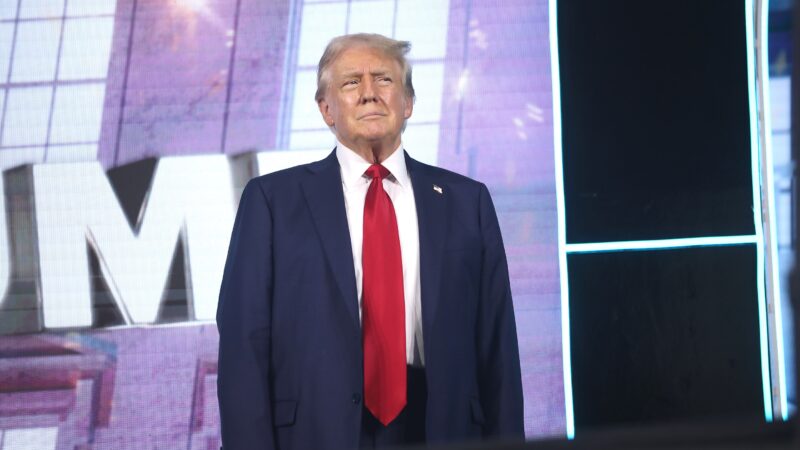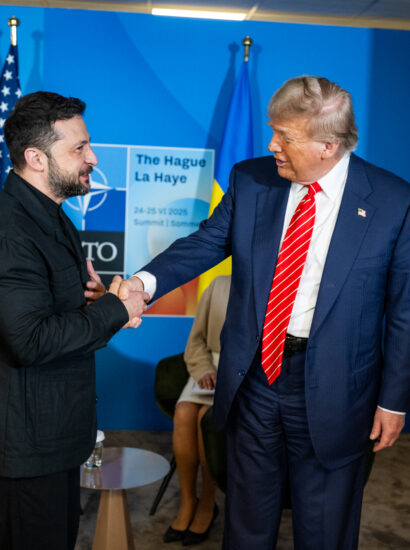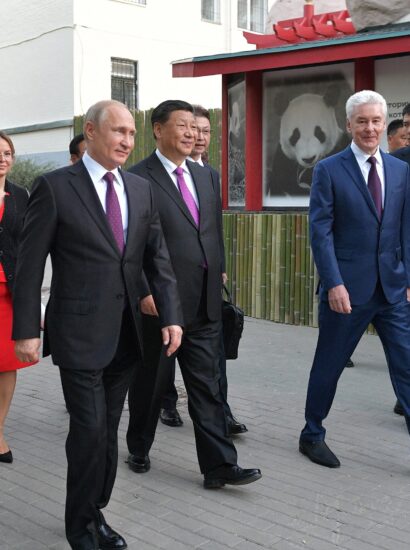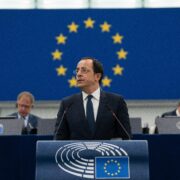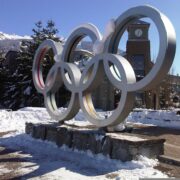Election Day was the most anticipated day for all Americans and citizens of the world. Everything was going to be decided on that day and many believed that it would be decisive not only for the United States, but for the entire world. Sergio Velasco went to towns in Pennsylvania and Washington DC to see what the feeling was like on Election Day for ordinary people and top analysts.
Tuesday, the day of the election, I was in Pennsylvania, a so-called battleground state, to analyze how election day was going and what the American voter felt before an election, which, for many experts, was one of the most important parts of the 21st century.
Pennsylvania: Close Race, Relaxed Atmosphere
The first feeling I noticed was that unlike European elections, there were fewer people here, which was expected because it has already been possible to vote in advance.
What surprised me, mainly because I am Spanish, was that a person can enter a polling station with a clear political sign.
At the entrance, there were several electoral posters. I was able to ask several people, and practically all of them told me the same thing: that the elections would be very close and that they did not know precisely who would win. The pro-Trump people said to me that they were more confident because they knew that the economic problems suffered by the Biden administration would be decisive. However, they still didn’t know exactly what was going to happen. What most of them also told me, something I commented on in my previous article, was that the atmosphere was not tense or toxic, that everyone had their own opinion, and that they had never had heated discussions about their vote with people close to them.
“I have liberal friends and there has never been a toxic environment, I have always been pro–Trump and I have never had a problem,” a white American woman interviewed at a polling station in Lebanon.
Conservative Analysts in Washington DC: Congress a Likely Possibility, Presidency Was Less So
Also, I was in Washington, D.C., to find out what the mood was like and how some political analysts, people in the Trump administration, and think tanks thought the election would go.
I met Valerie Huber, founder and president of the Institute for Women’s Health, who also worked in the Trump administration as chief of staff and senior policy advisor in the office of the assistant health secretary.
I talked to her about the election and what the main mistake the US had made was during the Biden administration.
“The geopolitical issue is one of the big key areas where we have to lead and have a strong image. (…) Trump had an image of strength and that is what we have to preserve, because whoever has power in the United States not only influences us, Americans, but also influences the rest of the world,” Huber said.
On the big question of who she thought would be president of the United States, she was not at all sure.
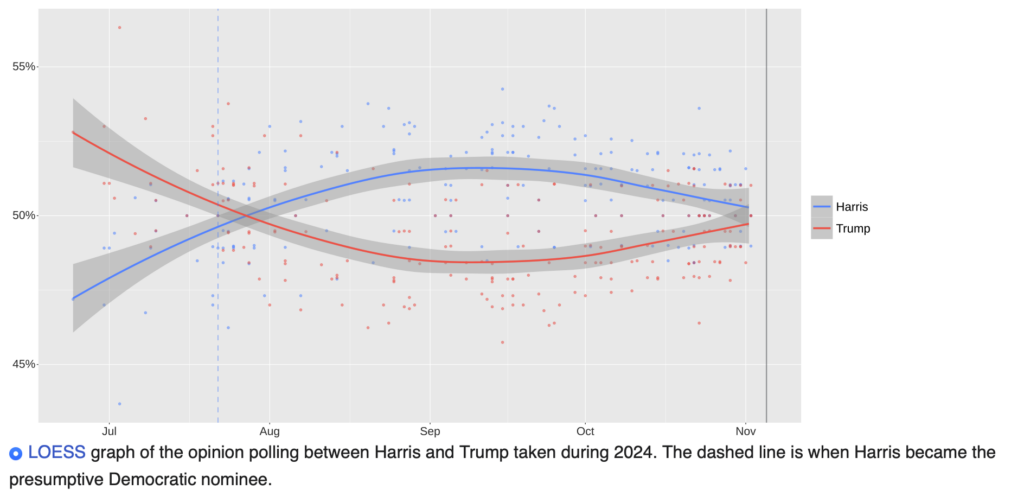
Source: Wikipedia
She said that she had been asked this question many times in the last few weeks, especially by people from other countries, and that she never had a fixed and firm answer. She was not sure who would win because she felt that everything would be very close.
“The best answer that represents me is the screaming face emoji, because I really don’t know what is going to happen. The only thing I know is that whoever wins, organizations like ours will redouble our efforts,” said Huber.
Later in the afternoon, I was also at the Heritage Foundation, the most influential conservative think tank in the United States and practically the world. The Heritage Foundation is the creator of Project 2025, a 900-page document that lays out a roadmap for reorganizing the federal government to promote a conservative agenda.
The analysts I met with included Mike Gonzalez, a journalist, advisor during the Bush administration, and Heritage Foundation senior fellow.
In our meeting, we talked about several issues about the election; although they had been there, they did not know precisely what would happen; they were more favorable to Trump, but they were not 100 percent sure about it.
Another significant issue that has gone unnoticed was the feeling of whether something could happen in 2020 with the alleged election fraud that took place, something that they were able to answer me with more than enough.
“We have been preparing for 4 years about the irregularities that may occur. There is a legal team alert about everything that could happen on Election Day, although we have already had to act in some places, but it has been quick and effective, since 2020 served as a precedent. In total, there are more than 500 lawyers prepared for what could happen,” said an analyst from Heritage Foundation.
Also, in my meeting with them, they were very confident about the Senate and Congress. We didn’t talk much about it because they took it for granted that they would win both houses.
Fractured and Divided U.S. Was Political PR
What I could observe, something I already mentioned in my other article, is that what has been sold to us of a tense and fractured United States is a lie. After Trump’s victory, practically nothing happened. People went on with their lives; it has not changed anything in what people do or don’t do.
I saw that the economic situation indeed benefited Trump as they were going to be the balance of change for most American voters. Latinos vote with their pockets, so that feeling of equality with some sense for what the election said was just that, a feeling because the economy has been what has tipped the balance.
At 00:30/1 p.m. on the East Coast of the United States, 6 a.m. in most of Europe, it was known that with almost certainty, Trump would be the president-elect of the United States.
How can be said as analysis? First of all, the polls failed miserably, only the AtlasIntel poll, which was already the closest in 2020, was the closest to the predicted results we have.
However, the other polls that showed Kamala Harris winning were wrong because they were intentionally ‘inflated’ or did not use the best methodology.
Secondly, as is once again being repeated, betting is becoming an increasingly reliable source of information on who can win the US presidential election.
Thirdly, the Democrats have forgotten about the Latinos, and trying to win them back will be difficult because, by habit and from what I have been hearing from them, they are usually people who are fixed voters of a party unless something severe happens that makes them change their mind.
And how can it be briefly analyzed regarding the impact of Trump’s presidency? First of all, relations with Europe will be a mystery. We still do not know what Donald Trump’s roadmap will be with the European Union, which, during his campaign, he criticized several times, especially concerning their spending on defense compared to their annual GDP.
Many believe this could push Europe to try to become more independent from the US, which Trump could facilitate since he has a more isolationist vision than other Republicans and Democrats.
Secondly, without a doubt, Trump’s geopolitical vision is contrary to the political establishment installed in Washington. The Ukraine-Russia war has been a big issue in the American elections; Trump promised a diplomatic solution, something that the European establishment does not like but that many politicians (for example, in the Patriots for Europe group) believe there should be.
In the Middle East, Trump has always tried to establish peace agreements; remember the Abraham peace accords, so he will surely try to follow that path (which is why he got Michigan, a state with a relatively high population of Muslims).

Demonstrators at the March on Washington for Gaza on January 13, 2024 (Photo: Elvert Barnes)
Thirdly, the economy is one of his great pillars; however, this time, he promised more tariffs, which could hurt allied countries and the American consumer. It is expected that he will have an agenda similar to the administration he had in his first term and a thriving economy, with a reduced bureaucracy and a lowering of taxes.
Fourthly, this gives wings to world conservatism, especially European conservatism, which, although it has gained strength in Europe, the shadow of the EPP and the Socialists in the European Parliament was superior.
Now, the new conservative right will have the most critical country in the world as an ally, which may accelerate the conservative discourse to become even more established in Europe. Likewise, issues such as illegal immigration could become even more accepted, and the European Union could change its mind.

